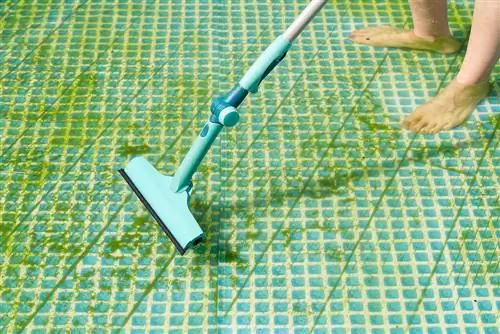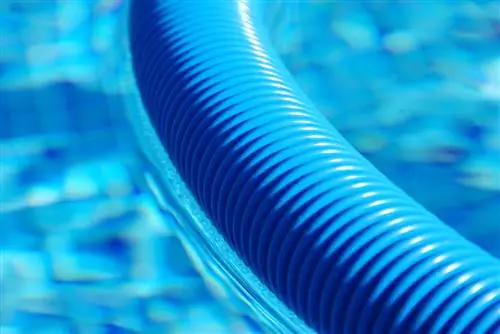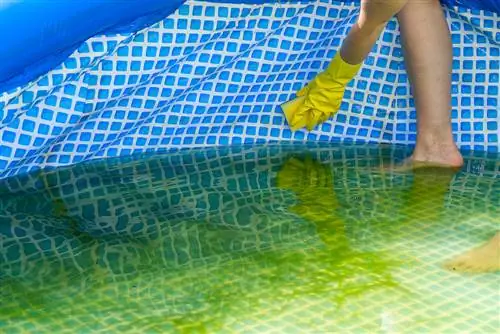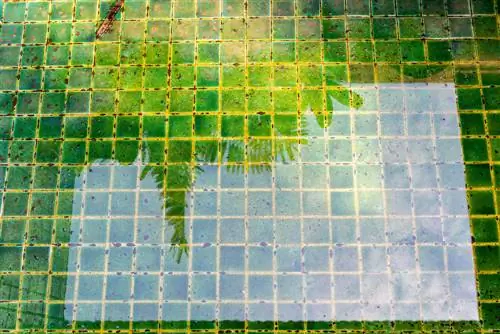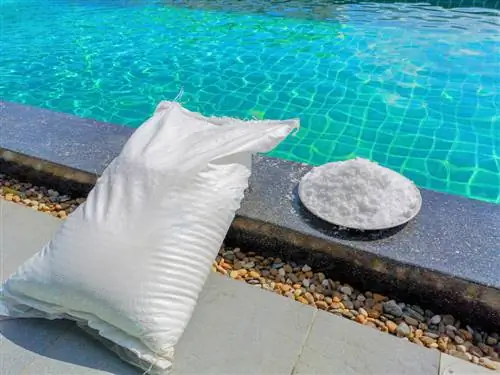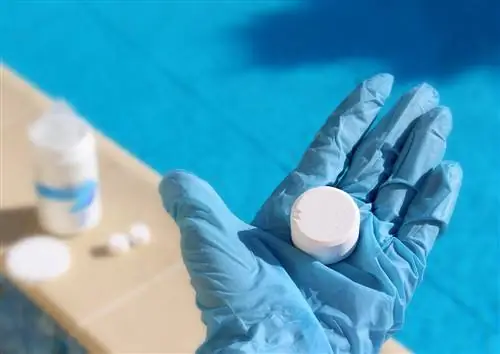- Author admin leonars@hobbygardeners.com.
- Public 2023-12-16 16:46.
- Last modified 2025-01-23 11:22.
A clean blue pool is the dream of many children and adults. However, if annoying algae forms, the fun in swimming is usually over. If the pool water changes, measures should be taken to remove dead algae.
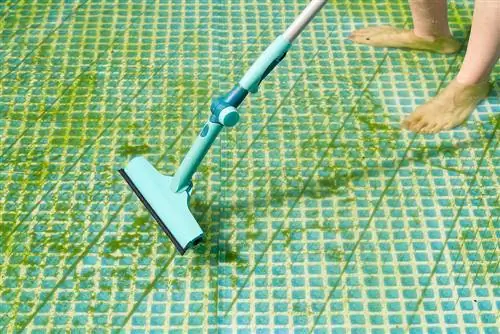
How do you remove dead algae from the pool?
To remove dead algae in the pool, you should brush the pool floor and walls, check pH, disinfect accessories, perform shock chlorination, add algae repellent and run the pool pump for 24 hours. Flocculants and environmentally friendly home remedies such as s alt or vinegar can also help.
How to remove dead algae from the pool?
In order to thoroughly clean the pool after an algae infestation, a fewimportant steps must be followed:
- Brush the algae off the floor and walls.
- Check the pH level.
- Disinfect all pool accessories.
- Perform shock chlorination.
- Add an anti-algae agent to the pool water.
- Leave the pool pump running for at least 24 hours.
The discolored water does not always have to be completely replaced. Ideally, the pool water can be adequately cleaned using these procedures. Check the chlorine and pH values regularly.
Do flocculants help remove dead algae?
Flocculating agents can be quite helpful in removing dead algae. These bind the algae in the pool into individual flakes and are therefore easier to detect. This makes suctioning the crop noticeably easier. The algae flakes can also be easily picked up by standard pool vacuum cleaners (€119.00 on Amazon). However, the use of biodegradable flocculants should be preferred in this case. Chemical variants are often particularly aggressive and can harm the environment.
Tip
Remove dead algae in the pool with helpful home remedies
Dead algae can also be removed from the pool using environmentally friendly home remedies. When it comes to thorough cleaning, you don't necessarily have to use chemical agents. S alt, vinegar and vitamin C are considered particularly efficient. These are simply mixed with the pool water. However, be careful that the vinegar can lower the pH. This should definitely be checked.

